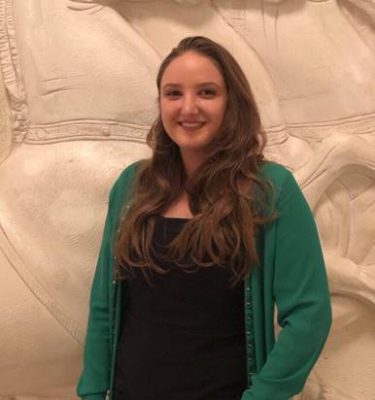
Ketevani Tatikiani
Eastern Europe and Russian Studies student
You graduated from Tbilisi State University, but you have also studied in University of Groningen, not to speak about the other international experience you gathered throughout various projects. Why did you choose Vilnius as a place for your master studies in the end?
I was always interested in how people live around the world, how they are similar or different. Therefore, when I was deciding what to study I chose International Relations – field that could give me broad understanding of the world and at the same time would give me a basis to continue my studies in a specific field. I found out interesting experiences and similarities between Georgia and other Eastern European countries, including challenging relations with Russia. Researching them could lead to the identification and solution of related problems, so I started looking for programs such as EERS and came across with the one suggested by Vilnius University. I knew some graduates in person and when I asked for reviews heard nothing but exciting opinions. I decided to apply and got admitted with the scholarship. As Lithuania supports my country a lot and we try to share some good practices with each other, it is very useful to be here and observe ongoing processes.
Could you compare, what are the main differences and similarities between Lithuanian and Georgian education systems / learning process? What was the most challenging or surprising when you moved to Vilnius overall?
I would say that there are not too many differences between my country and Lithuania, especially after spending some time in other countries such as China that are totally different. However, what I really experienced in VU was the special attitude towards students. Most of the professors and administration of TSPMI tried to make our stay in Lithuania productive, useful and pleasant. I like that our opinion about studying process is taken into account – we are asked about what we like or not and how things can be improved. Another very exciting part of studying here is my international classmates with various backgrounds, challenging my ideas and views through captivating discussions. This is something I will always miss after graduation.
Since September 2019 you have been working as an executive director of Volunteers Hub. Could you tell us a bit more about this initiative and your role in it? How do you deal with challenges caused by the distance (if there are any)?
Me and my team perceive Volunteer Hub as our child. I know it sounds funny, but we put as much energy and enthusiasm in our work, as parents need for their kids. In August a group of several friends decided to establish an organization that would contribute to the solution of modern problems of our region through the help of volunteers – that is how Volunteer Hub came into the world. We have been promoting volunteering since September and mobilized hundreds of people through various social and educational projects. At the same time we started W4W (Women for Women) initiative, which unites more than 7,000 women helping and empowering each other. We manage a group that shares information about working and educational opportunities, tips and advises, as well as provides technical and emotional support. We have already helped several girls to participate in international educational projects, start internships and find jobs.
As I left country right after Volunteer Hub was founded, it was a bit difficult and very challenging to work remotely, but I am very lucky and thankful for VH team members who were doing their best to help me fulfill my tasks in the organization.
You have also been Young European Ambassador from Georgia at the European Commission Directorate-General for EU neighbourhood and enlargement. What was your role and mission there? What were the main lessons learned?
Young European Ambassadors initiative unites representatives of the European Union and Eastern Partnership countries in order to exchange ideas, knowledge and experiences of young people in their countries. We share the best practices and with the help of the EU voluntarily carry out various activities that cover fields such as education, environment, sports and healthy lifestyle, social projects, etc. At the same time, this is also an excellent opportunity for me to better understand current events of Eastern Partnership countries and represent Georgian youth in international events.
The topic of your master thesis is EU-Chinese Relations vis-a-vis Geopolitics of Eastern Europe. What is the main reason that encouraged you to choose this topic?
My utmost interest towards China comes from 2019 when I visited the country and spent there a few months. PRC is an important actor, causing controversial ideas in scholars, politicians and other players of international world. Chinese relations with Eastern Europe gained particular attention because of 17+1 initiative which is relatively new and ambiguous event in CEE. This and other initiatives related to China and CEE countries will require more and more understanding in the near future, so I would like to start exploration now.
Volunteering, interest in foreign politics, international experience – so many details that one can use to describe you! Please, help us to complete the puzzle and describe yourself: who is Ketevani Tatikiani?
I think Ketevani Tatikiani is a person who wants to foster the solution of important global, regional and domestic problems. Volunteering and self-development are some of the key aspects that are helping me achieve this goal so far.







